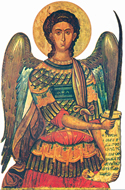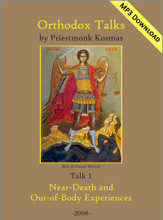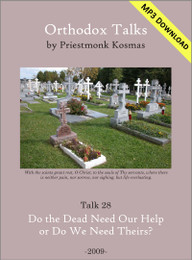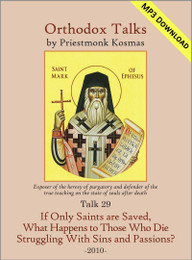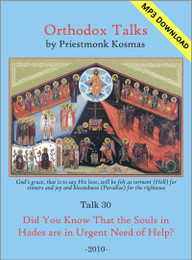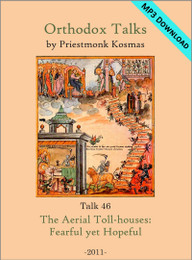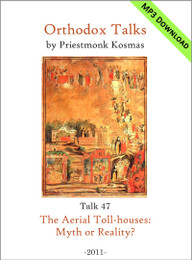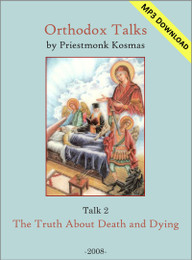 Loading... Please wait...
Loading... Please wait...Search our Talks
MP3 Downloads
Update on New Talks
(MP3 duration: 2hrs 4mins)
In almost any bookstore or library, as well as online and on television, one can find numerous accounts of “near-death experiences”—first-hand experiences of people who have died or nearly died and then returned to life. Such people often describe meeting a “being of light” that is non-judgemental and full of love, as well as many other pleasant encounters and sensations. These accounts have greatly influenced public opinion on matters relating to death and the afterlife, even among many Orthodox Christians.
In this talk, Father Kosmas discusses how many people today feel that this new teaching offers a more enlightened and humane attitude towards death and dying. He describes how these accounts are even promoted as a helpful way to prepare the dying for the transition from this life to the next. It is claimed that these accounts remove the fear of death, replacing it with a calm acceptance, or even an eager anticipation, of death and the afterlife. Although the Orthodox Church possesses the truth about death and dying, many Orthodox Christians have unfortunately been influenced by these teachings.
The following questions are also discussed: is it true that when a person dies they can see their own body? Should Orthodox Christians fear death? What were the saints concerned with at the time of their death? Why does society object to treating hell as a reality? Why have scientists and doctors become interested in dying and the afterlife? How do modern near-death and afterlife experiences promote suicide? Can a soul see and hear after death? Can the dead appear and talk to the living?
Other points covered in this talk include: ancient civilizations and their beliefs about the afterlife; negative opinions about traditional Christian teachings on the afterlife; how blind people who died during an operation could see everything in the operating room; how angels at times appear to the dying as dead relatives or friends; accounts of people who died and were resuscitated and what they saw; visions at the time of death; society’s powerlessness to help the dying; the three types of ESP: natural, divine and demonic; and spiritual communism in the West.

